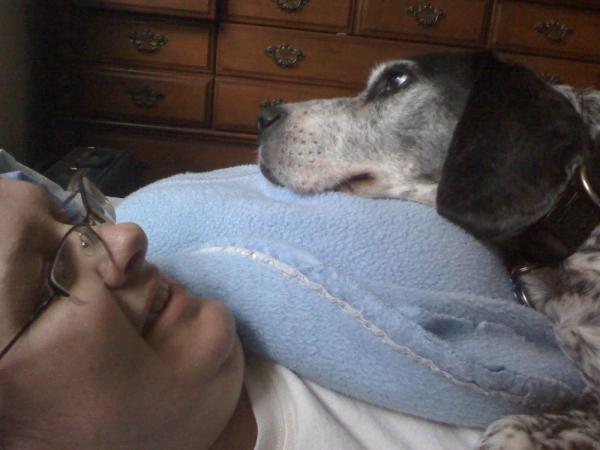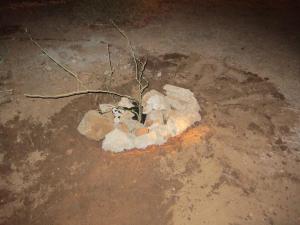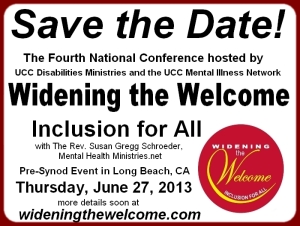Sunday morning in church the choir sang an amazing anthem. One line of that anthem stuck out to me and has left me pondering since the service went like this “…the lame will run free”. The anthem was speaking about the world as if settled in the Kindom* of God. The image of the lame walking is a standard image found in the Biblical narrative. It is not so much a literal image as it is one of the metaphorical images used to depict the the Kindom of God where right relationships are restored and persons are liberated to be who God made them to be. An image used to show that the Kindom is real and here on earth.
The line from the anthem stands out to me because this making the “lame” to “walk” has theological implications of personhood and ontological implications of our identities in the afterlife. Its a question I hear only quietly asked between friends, even within the disability community. It is not so much an opposition to the metaphorical image of making the blind to see or the lame to walk being symbolic of the Kindom of God, for of course there is an expectation that the Kindom of God will bring many things that we can not now imagine and that there with be a wholeness of identity and personhood that is beyond our mortal understanding . But between friends in the disability community, I have yet to met one persons who thinks or wants to arrive in the Kindom of God “cured” and without their impairments. No, my friends are not in need of psychological assistance, on the contrary most are clergy and have passed psychological background testing and others whom I have had this conversation with are PhDs. This issue here is not what the Kindom of God brings or does not bring, it is not an issue of God’s power needing to be made manifest, the issue is ontological individual identity.
“Of course I will have disability in the Kingdom of God!” I have a clear memory of a friend proclaiming this to me. It was not a denial of all things being made new in God , but an assertion that the identity that God created in her was GOOD (see Genesis)! The identity of people with disabilities is what often gets misunderstood when we toss around ideas of the mute persons talking, the blind man seeing, and the woman with a limp suddenly having none.
As human beings we are embodied beings. Just as Jesus came to know the world by becoming incarnate, we come to know the world, build relationships with others, and come to know and understand God through our experience of being in our bodies. It is hard to deny that our bodies impact our identities. Look at how the theory, theology, and lived experience of the GLBTQI movement over the last twenty years has demonstrated how our experiences of embodiment impact our identities. It would be impossible for me to know how not growing up being ridiculed and bullied for having a speech impediment, physical slowness, and poor balance would have impacted my identity. Do I, personally, think I will have a speech impediment and poor balance in the Kindom of God? No, actually I think in the Kindom of God I have a voice, power of communication, and poise that actually compels others to listen to me–because that would the topsy-turvy righting of relationship found in God’s Kindom. As a person who has lived with chronic pain, do I believe I will have pain for eternity? No I do not. ButI do think my experience has taught me that human beings have limits; that is not necessary or even desirable to be able to anything one wants at anytime. I have learned humility, and grace, patience and perseverance. Pain is a teacher and gaining experience in how to learn from subtle experiences is something that offers profound spiritual lessons. They are not lessons about have speech impediments nor are they lessons about pain. They are lessons about getting to know oneself in relation to self, others, and God.
So I am left wondering who is going to “run free”? And why? Is it something within their personality that leads them to want or need to “run free”? Or are we finally going be able to “run” as we are without the judgement of others suggesting that we need to run, even though that may be uncomfortable for us. (Please don’t make me think about school “Field Days”, as I would consider those days to be one of Dante’s many circles of Hell.) For some of us, people with disabilities, the metaphors of the Kindom of God maybe what they are—we can’t change the scriptures, and its beautiful poetry so why would we want to? But why are the people with disabilities the only ones who have to be “transformed” to fit into the Kindom? For myself, and others with disability, it is more of an ontological question. God made me this way, and it is Good. Given the nature of my ontological being as a person with disability; given the fact that my personal identity is defined by experiences of disability, to what degree to I fit the “normalcy” of others in the Kindom of God? Why do I need to run, when I am already free?
* “Kindom” is not a misspelling of Kingdom, but an intentional feminist interpretation of the Kindom of God where equality exist between people living together as God intends



